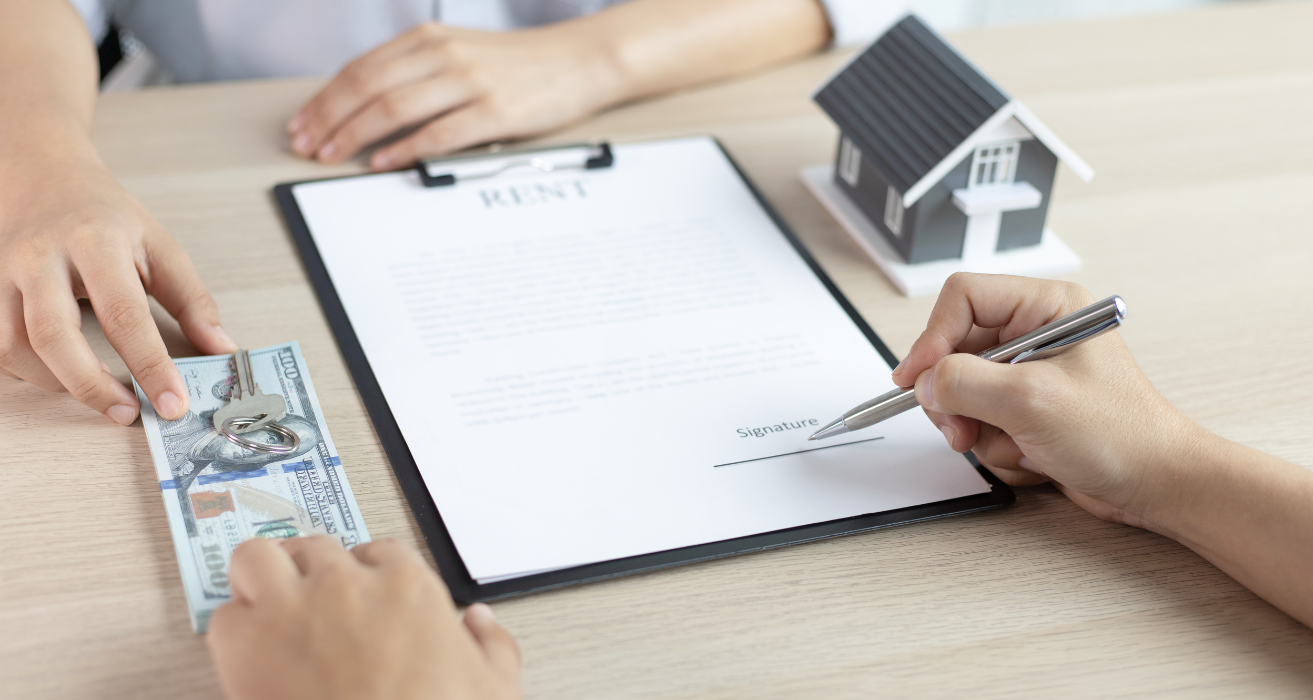Should You Pay Off Your Mortgage or Invest Your Money?
.png)
Let’s be real: You’ve got some extra cash, maybe from a bonus, inheritance, or just smart saving. Now you’re stuck deciding: Do I throw it at my mortgage or invest it for the future?
This decision isn’t just financial, it’s emotional. Owning your home outright feels good. But so does building long-term wealth. So, what’s the better move?
In this blog, we’ll weigh both options, clearly, practically, and without the fluff. You’ll walk away with a confident next step based on facts, not fear.
Key Takeaways:
- Understand the opportunity cost of paying off a mortgage early vs. investing.
- Learn how interest rates, tax implications, and investment returns impact your decision.
- Get a framework to align your choice with your financial goals and risk tolerance.
- No VA-specific content; applies to all borrowers.
Mortgage Payoff: The Security-First Move
Paying off your mortgage early is like buying freedom. There will be no more monthly payments, no more interest, and just full ownership.
Benefits:
- Guaranteed savings: You avoid thousands in interest payments.
- Emotional relief: Peace of mind and fewer bills.
- No market risk: It’s a guaranteed return equal to your interest rate.
Considerations:
- Liquidity loss: You can’t easily tap into home equity without refinancing.
- Opportunity cost: Money in the market might grow faster.
“Think of it this way: every dollar you put toward your mortgage saves you your current interest rate. If your mortgage rate is 3%, it’s like earning 3% risk-free.”
Investing: The Growth-Oriented Move
Putting extra money into investments, stocks, mutual funds, REITs, etc., offers the chance for higher returns over time.
Benefits:
- Potential for higher gains: Historically, the S&P 500 has averaged ~7% annually after inflation.
- Liquidity: Access your funds when needed.
- Compounding power: Long-term gains can be exponential.
Risks:
- Volatility: Markets fluctuate, and there are no guarantees.
- Behavioral risk: Emotional reactions can lead to bad timing.
- Debt remains: You’re still paying mortgage interest.
Pro Tip: Use tax-advantaged accounts (like Roth IRAs or HSAs) to supercharge your investment strategy.
Hybrid Strategy: Best of Both Worlds?
Here’s a powerful idea: split your extra funds.
Example Split:
- 50% goes toward mortgage principal
- 50% into a diversified investment portfolio
This lets you:
- Reduce debt faster
- Keep some liquidity
- Capture market upside
It’s a strategy that balances psychological peace with financial growth.
How to Decide: A Personal Framework
Use these criteria to guide your choice:
- What’s your mortgage rate?
- Under 4%? Investing may yield more.
- Over 6%? Paying down may save more.
- Do you have other high-interest debt?
- Always pay that off first.
- Always pay that off first.
- Are you maxing retirement contributions?
- If not, prioritize that first.
- If not, prioritize that first.
- Emergency fund in place?
- At least 3–6 months of expenses before any extra moves.
- At least 3–6 months of expenses before any extra moves.
- Emotional tolerance for debt vs. market risk?
- This is your gut check.
Conclusion: What’s the Smartest Next Step?
There’s no one-size-fits-all answer, but here’s what we know:
- Paying off your mortgage guarantees peace of mind.
- Investing offers the chance to grow your wealth.
- A hybrid approach might offer the best of both.
If you're looking for guidance that prioritizes your goals, whether debt-free living or building passive income, check out:
- Be My Neighbor Mortgage – a trusted lending partner (NMLS #1743790).
- realpha – a commission-free home buying platform that empowers smarter real estate investing.
Both platforms are here to support your journey, no pressure, just clear value.
FAQs
Is it financially better to pay off your mortgage or invest?
It depends on your mortgage interest rate and the potential return on your investments. Generally, if your mortgage rate is lower than expected market returns, investing may grow your wealth more over time.
Can I do both, pay off and invest?
Absolutely. Many homeowners split extra funds between mortgage payments and investment accounts to balance peace of mind and growth.
What if I’m close to retirement?
Consider your cash flow needs and risk tolerance. Many prefer the security of a paid-off home in retirement.
Should I refinance before paying off early?
If your interest rate is high, refinancing first could make early payoff more efficient. Always compare total costs.
Is paying off my mortgage early tax-deductible?
Mortgage interest is tax-deductible if you itemize. But if you pay off early, that deduction disappears. Consult a tax advisor.
Important Disclosures:
- Mortgage advice varies by individual circumstance. This blog is for informational purposes and not financial or investment advice.
- Interest rate examples are illustrative and not guaranteed.
- Be My Neighbor Mortgage is a licensed mortgage lender, NMLS #1743790.
- realpha is a commission-free home buying and investing platform and may partner with BMN for certain customer programs.
- All loans are subject to underwriting approval. Terms and conditions apply.
Consult a licensed financial advisor before making any investment or loan decisions.
Need help deciding your next move?
Explore homeownership and investing options tailored to you at:
- Be My Neighbor Mortgage
- realpha
Let clarity and confidence lead the way.





.png)
.png)
.png)
.png)
.png)
.png)








.jpg)
.jpg)
.jpg)
.jpg)
.jpg)
.jpg)
.jpg)
.jpg)
.jpg)
.png)








.jpg)
.jpg)
%20(1).jpg)
.jpg)
.jpg)

.jpg)
.jpg)




-min.png)
.avif)
-min.png)
-min.png)
.jpg)
.avif)

-min.png)

.avif)
.avif)






-min.png)
-min.png)
-min.png)

-min.png)

-min-p-1080%20(1)%20(1).jpg)
-min.png)
-min.png)
.avif)
.avif)
.avif)
.avif)
.avif)
.avif)
.avif)
.avif)
.avif)
.avif)
.avif)
.avif)
.avif)
.avif)
.avif)

.avif)
.avif)
.avif)
.avif)
.avif)
.avif)
.avif)
.avif)
.avif)
.avif)



